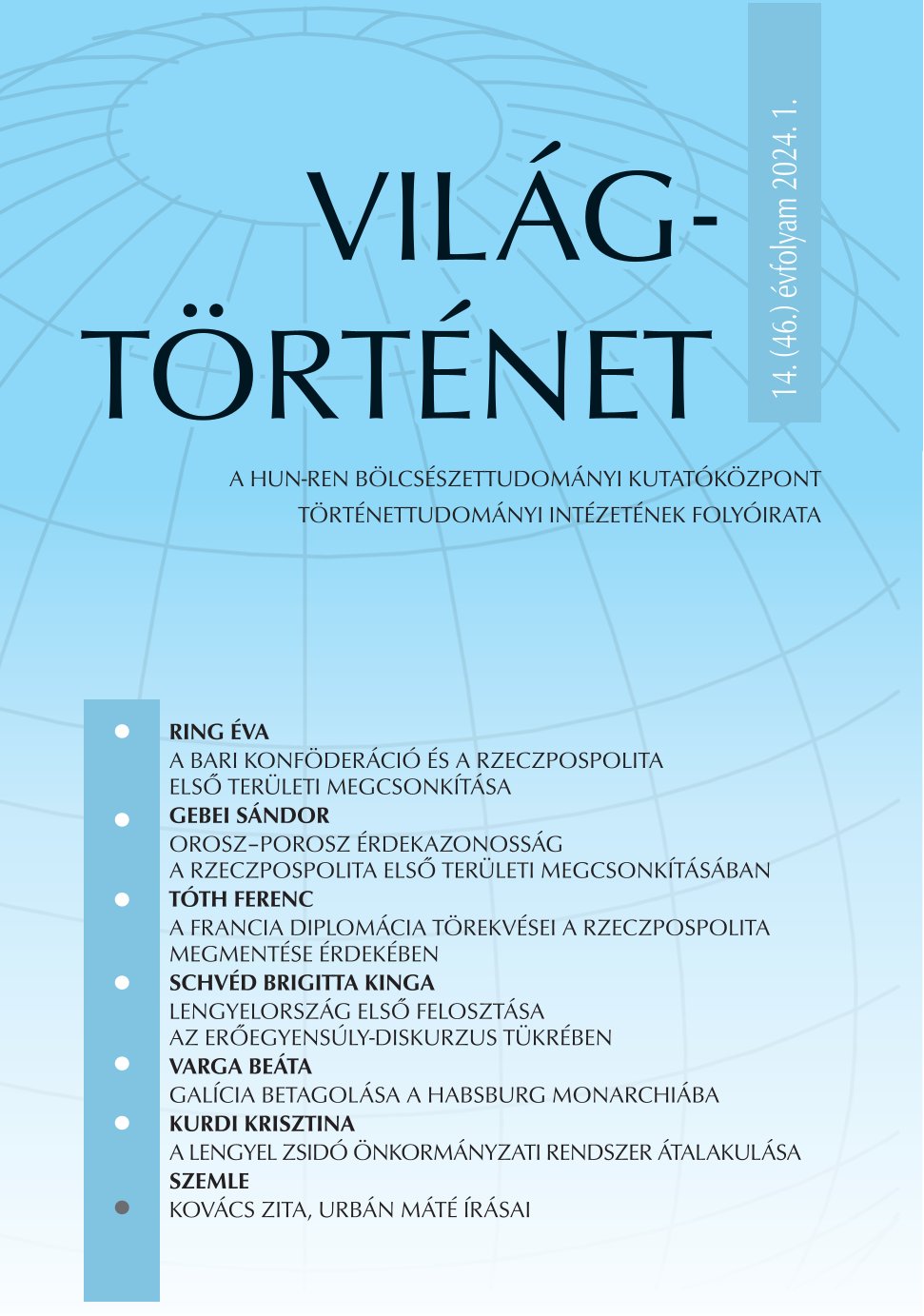Orosz–porosz érdekazonosság a Rzeczpospolita első területi megcsonkításában
Russian–Prussian Identity of Interest in the First Territorial Mutilation of the Rzeczpospolita
Author(s): Sándor GebeiSubject(s): 18th Century
Published by: Magyar Tudományos Akadémia Bölcsészettudományi Kutatóközpont Történettudományi Intézet
Summary/Abstract: The failures of the Polish–Lithuanian state in the 17th century gave rise to the 18th century Russian– Prussian identity of interest at the expense of the Rzeczpospolita. It was then that the great power of the Rzeczpospolita (Res Publica Utriusque Nationis) was finally sacrificed. The military defeats of “Little Northern War” (1655–1660, the potop), the “Thirty Years’ War in East-Europe” 1654–1686 and “Great Northern War” 1700–1721, and their political consequences ended the Polish–Lithuanian state’s great power. Its domestic political life came under the ever-increasing influence of Russia and Prussia. The last election of the Polish king (1764) and the years of the reign of Stanisław Poniatowski prove that the aggressiveness of the neighbouring “countries of black eagles” intensified against the Rzeczpospolita. Their declared cooperation was based on demanding religious and civil rights of non-Catholic Polish subjects (e.g. treaties of 1764, 1768, 1769). The “Polish question” as the common interest of Petersburg, Berlin, supplemented by the accession of Vienna in 1772, is proof that this was the only way to protect Europe from another war. In their point of view the territorial mutilation of the Rzeczpospolita in 1772 was, mere a preventive step to avoid a European catastrophe.
Journal: Világtörténet
- Issue Year: 2024
- Issue No: 1
- Page Range: 43-56
- Page Count: 14
- Language: Hungarian

